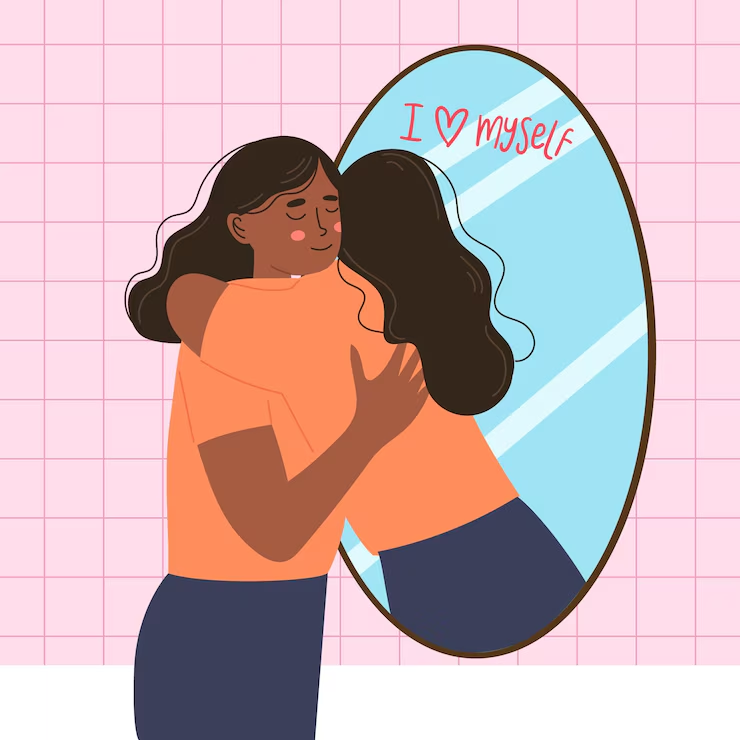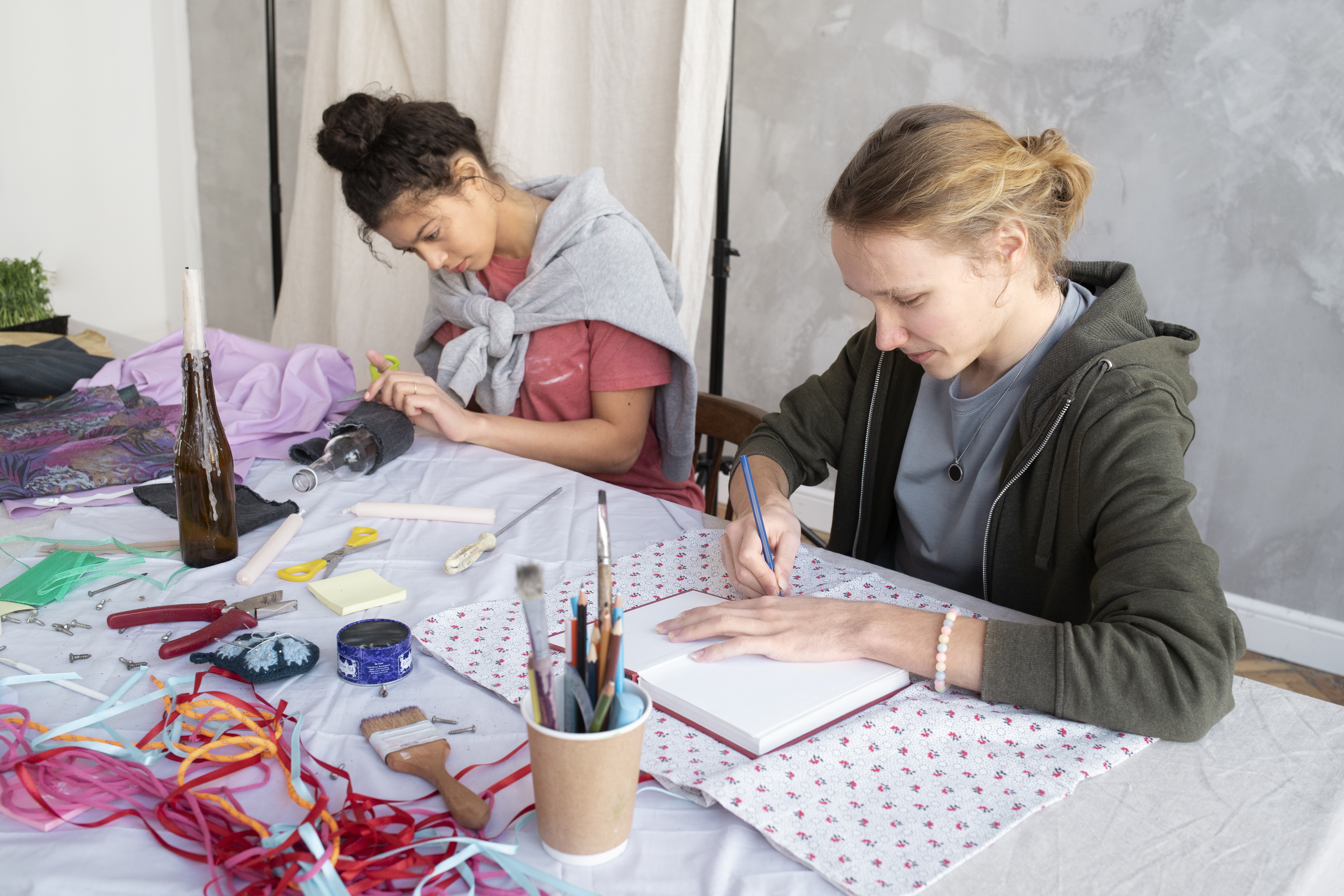Overcoming a Lifetime of Criticism: How to Build Lasting Self-Esteem

Clara Novak
Author

Everything in our lives is influenced by our sense of self-worth, including the relationships we form and the goals we dare to pursue. It serves as the cornerstone of our sense of self-worth and shapes our perception of and interactions with the outside world.
The process of developing self-esteem for many girls is characterized by an unending barrage of criticism. These experiences, which range from early childhood remarks about appearance to adolescent pressures regarding behavior and accomplishments, leave deep scars that may last into adulthood.
"The words we hear as children become the voice in our heads as adults."
Girls are especially affected by this reality because they are subject to particular expectations and pressures from society. Typical encounters consist of:
- Constant scrutiny of physical appearance
- Pressure to be "perfect" in academics and behavior
- Criticism of emotional expression
- Judgment about social relationships and choices
Self-perception is greatly influenced by childhood trauma, whether it comes from peer relationships, family dynamics, or cultural messages. Neural pathways formed by these early experiences affect how we handle criticism and affirm our value throughout our lives.
It is necessary to comprehend and mend these childhood wounds in order to develop long-lasting self-esteem. It's about realizing that other people's opinions and criticisms don't define your value. Acknowledging these past experiences and developing a new, empowering inner voice are the first steps on the road to true self-esteem.
Understanding the Impact of Criticism on Self-Esteem
Our self-esteem can be permanently impacted by criticism, which frequently results in negative self-talk and feelings of inadequacy. These outside critiques can turn into an internal voice that challenges every choice we make and action we take if we are constantly exposed to messages about our shortcomings.
The Cycle of Self-Criticism
Here are some common patterns of self-criticism that may arise from past criticisms:
- Replaying past criticisms in your mind
- Doubting your decisions and abilities
- Comparing yourself to unrealistic standards
- Dismissing your achievements and successes
- Anticipating negative judgment from others
Our everyday lives can be significantly impacted by this cycle of self-criticism, which can affect our relationships with others, our career decisions, and our general well-being. You may find yourself considering the following:
"I shouldn't speak up in meetings - my ideas probably arent good enough"
"Why try new things? I'll just fail anyway"
"Everyone else seems to have it together except me"
The Role of Societal Pressures
These internal conflicts can be made worse by societal pressures, especially those related to media representation and social expectations. Messages about what it means to be happy, successful, and attractive are all around us.
Some examples of unrealistic standards perpetuated by society include:
- Perfect body measurements
- Flawless skin and appearance
- Professional success while maintaining work-life balance
- Effortless homemaking and parenting
- Constant positivity and emotional control
There is a disconnect between perceived ideals and reality as a result of these expectations. Consequently, you might experience pressure to:
- Look younger than your age
- Maintain a specific weight
- Always appear put-together
- Never show vulnerability
- Excel in multiple areas of life simultaneously
The Manifestation of These Pressures
The impact of these societal pressures can manifest in various ways:
- Avoiding social situations out of fear of judgment
- Overworking as a means to prove your worth
- Excessive spending on appearance-related products in an attempt to meet societal standards
- Difficulty accepting compliments due to ingrained self-doubt
- Hesitation in pursuing opportunities for growth or success
According to research, women who are subjected to constant criticism frequently adopt protective behaviors. Perfectionism, people-pleasing tendencies, and avoiding situations where they might be judged are some examples of these behaviors.
Building a healthy sense of self-esteem is difficult because of the psychological strain of carrying these expectations, which results in a persistent state of anxiety and self-doubt.
The Role of Body Image in Girls' Self-Esteem Journey

Deep psychological scars from body shaming can last well into adulthood. 94% of adolescent girls have been the victim of body shaming, according to research, with remarks frequently beginning as early as age 6. Girls' perceptions of themselves are shaped by these experiences, which give them a skewed perspective on their value.
The impact of body shaming manifests in several destructive ways:
- Constant body surveillance: Girls learn to view their bodies as objects for others to judge
- Social withdrawal: Avoiding activities or situations due to body image concerns
- Academic performance decline: Mental energy spent on appearance concerns affects concentration
- Relationship difficulties: Fear of judgment impacts social connections
A troubling trend can be seen in the connection between eating disorders and body shaming. According to studies, girls who regularly receive body criticism are three times more likely than their peers who do not to develop eating disorders.
Common manifestations of distorted body image include:
- Body Dysmorphia: Obsessive focus on perceived flaws
- Anorexia Nervosa: Restrictive eating patterns
- Bulimia: Cycles of binging and purging
- Orthorexia: Unhealthy obsession with "clean eating"
The statistics are clear: 65% of girls who suffer from eating disorders say that family members' body shaming set them off. These conditions frequently arise as coping strategies, attempts to take charge in reaction to social pressure and outside criticism.
Girls who struggle with distorted body image often report physical symptoms:
- Chronic fatigue
- Digestive issues
- Sleep disturbances
- Hormonal imbalances
These physical manifestations intensify the psychological effects of body shaming by creating a vicious cycle in which health problems further affect one's self-image. Eating disorders can have serious medical repercussions that impact bone density, heart health, and reproductive function.
Furthermore, it's critical to acknowledge that eating disorders come in a variety of forms beyond the ones that are most widely recognized. For example, young girls who aspire to the "perfect" body image are increasingly exhibiting orthorexia, an unhealthy obsession with healthy eating.
Creating Supportive Spaces for Girls' Empowerment

Rebuilding self-esteem that has been harmed by years of criticism requires the creation of safe, welcoming environments. These areas act as safe havens where girls can be themselves without fear of criticism.
Key Elements of Empowering Environments:
- Skill-Based Recognition: Celebrate achievements, talents, and intellectual capabilities rather than physical attributes
- Open Dialogue: Create opportunities for honest discussions about personal challenges and growth
- Positive Role Models: Connect girls with mentors who embody confidence and self-acceptance
- Zero-Tolerance for Body Shaming: Implement strict policies against appearance-based criticism
Practical strategies to cultivate empowerment include:
- Teaching critical analysis of media messages
- Identifying unrealistic beauty standards
- Understanding digital manipulation in images
- Sports and physical activities focused on strength and skill
- Creative arts workshops for self-expression
- Leadership development opportunities
- Support groups for shared experiences
- Peer mentoring programs
- Collaborative projects celebrating diversity
Embracing Uniqueness Through Action:
Girls require places where their opinions are valued. Simple yet effective practices can be implemented in homes, community centers, and schools:
- Display diverse representations of success and beauty
- Share stories of women who challenged societal norms
- Create platforms for girls to showcase their talents
- Encourage participation in decision-making processes
- Celebrate individual progress rather than comparison
These encouraging surroundings assist girls in realizing their value beyond appearance. Girls gain resilience against outside criticism and develop enduring self-confidence when communities place a high priority on character development, leadership abilities, and personal growth.
Building Resilience Against Criticism: Strategies for Lasting Self-Esteem

It takes realistic, doable tactics that you can incorporate into your everyday life to develop resilience against criticism. The following are tried-and-true strategies to boost your self-esteem and shield yourself from harmful influences:
Practice Self-Compassion Daily
- Replace harsh self-judgment with kind, understanding self-talk
- Treat yourself with the same gentleness you'd offer a close friend
- Acknowledge that making mistakes is part of being human
- Write down three things you appreciate about yourself each morning
Reframe Negative Thoughts
- Challenge critical inner voices by questioning their validity
- Transform "I'm not good enough" into "I'm learning and growing"
- Keep a thought journal to track and adjust negative thinking patterns
- Focus on your progress rather than perceived shortcomings
Set and Maintain Healthy Boundaries
Your emotional well-being matters. Protect it by:
- Identifying toxic relationships that drain your energy
- Learning to say "no" without feeling guilty
- Limiting exposure to people who consistently criticize you
- Communicating your boundaries clearly and firmly
Create a Personal Growth Toolkit
- Develop positive affirmations that resonate with your values
- Practice mindfulness to stay grounded during critical moments
- Engage in activities that boost your confidence
- Surround yourself with supportive, uplifting people
Build a Criticism Filter
- Distinguish between constructive feedback and harmful criticism
- Accept compliments without deflecting them
- Trust your judgment about your worth and capabilities
- Remember that others' opinions don't define your value
Consistent practice increases the effectiveness of these tactics. Every tiny step you take toward self-compassion fortifies your ability to withstand criticism and lays the groundwork for long-lasting self-worth.
The Journey Towards Lasting Self-Esteem: A Holistic Approach

A comprehensive strategy that integrates empowerment and personal development is necessary to develop long-lasting self-esteem. Many facets of life are covered by this journey, which has a cascading effect that goes beyond personal growth to include societal transformation.
Personal Growth and Self-Esteem
- Developing new skills and talents reinforces a sense of capability
- Setting and achieving personal goals builds confidence
- Learning from challenges transforms setbacks into growth opportunities
- Embracing authenticity allows genuine self-expression
Academic and professional success are closely linked to the development of long-lasting self-esteem. Girls who grow to have a strong sense of self-worth frequently:
- Take on leadership roles
- Pursue challenging career paths
- Voice their opinions confidently
- Make decisions based on their values rather than external pressure
Empowerment and Societal Impact
Girls who develop a healthy sense of self-worth make constructive contributions to their communities:
- They challenge gender stereotypes
- Mentor younger generations
- Advocate for equal opportunities
- Break barriers in male-dominated fields
Social change is fueled by this group empowerment. Businesses with self-assured female executives exhibit:
- Higher innovation rates
- Improved workplace culture
- Better decision-making processes
- Increased profitability
Gender equality and personal development are related in the following ways:
- Equal participation in decision-making roles
- Fair representation in various industries
- Balanced domestic responsibilities
- Elimination of gender-based wage gaps
Girls who have high self-esteem are able to demand equal treatment and acknowledge their value. This acknowledgment lays the groundwork for:
- Negotiating fair compensation
- Pursuing advancement opportunities
- Building supportive professional networks
- Challenging discriminatory practices
The path to long-lasting self-esteem influences social structures as well as individual lives, fostering environments where girls can flourish and take charge with assurance.
Conclusion
The criticisms you've received throughout your life don't define who you are. Every unfavorable remark, severe criticism, and unreasonable expectation that is directed at you is a reflection of the limitations of others, not of your own worth.
After years of criticism, it takes bravery, perseverance, and commitment to develop enduring self-esteem. By acknowledging how these experiences affect your sense of self-worth, you've already taken the first step. It's time to:
- Trust your inner voice above external criticism
- Celebrate your unique qualities and achievements
- Set firm boundaries with those who diminish your worth
- Practice self-compassion daily
Remember: You are worthy of love, respect, and acceptance - exactly as you are.
Being a "better" version of yourself is not the goal of your quest for long-lasting self-esteem. It's about removing the layers of doubt and criticism to reveal the amazing person you've always been.
Be proud of your fortitude. You've made it through every moment of self-doubt, every harsh remark, and every criticism. You have that strength inside of you, waiting to propel you forward.
You have the right to be yourself, speak your mind, and stand tall. Your distinct voice, viewpoint, and presence are needed by the world. Your value already exists and is just waiting to be acknowledged; it doesn't need to be earned.
FAQs (Frequently Asked Questions)
What is self-esteem and why is it important for girls who have faced criticism?
The regard and regard one has for oneself is known as self-esteem. For girls, particularly those who have experienced lifelong criticism, it is essential because it has a positive impact on their self-esteem, mental well-being, and general capacity to overcome obstacles.
How does constant criticism affect a girl's self-esteem?
Unrealistic expectations, self-criticism, and internalized negative messages can result from constant criticism. These elements undermine a girl's self-esteem and affect her mental health by undermining her confidence and encouraging feelings of inadequacy.
In what ways does body image influence a girl's self-esteem journey?
Self-esteem is significantly shaped by one's body image. For girls who struggle with external criticisms about their appearance, problems like body shaming and distorted perceptions can result in low self-esteem and an increased risk of eating disorders.
How can supportive environments empower girls to build lasting self-esteem?
Girls are empowered when inclusive environments are created that prioritize abilities, talents, and character over outward appearance. Promoting individuality and diversity in media representation helps people become more self-assured and resilient to social pressures.
What strategies can girls use to build resilience against criticism?
Girls can set healthy boundaries with critical people, reframe negative thoughts, and practice self-compassion. These methods support overall health and foster enduring self-worth in the face of adversity.
How does building lasting self-esteem in girls contribute to gender equality?
Strong self-esteem empowers girls to challenge social norms and fosters personal growth. By promoting self-assured involvement and leadership in a variety of spheres of life, this empowerment promotes gender equality.

